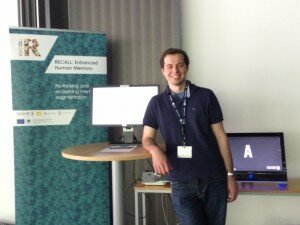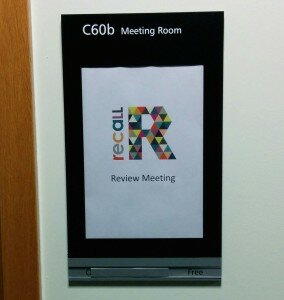On June 24-28 Recall researcher Dr Caterina Cinel attended SARMAC 2015, a biennial conference on applied memory and cognition. Researchers at the conference present work where psychological theories of memory and cognition are applied to real-word domains, such as law, education, advertising, politics, etc. At the conference, Caterina presented a poster showing the research carried out at Essex University in the last year on retrieval-induced forgetting (RIF). RIF is a well-studied phenomenon where retrieval practice of a subset of events can enhance their later recall, but can impair accessibility to related but unreviewed events. In seven experiments, Essex researchers C. Cinel and G. Ward show that we can manipulate factors that selectively amplify and/or attenuate the forgetting and enhancement of selected memories. However, whereas retrieval practice effects can be found with all stimuli, to date, evidence for RIF has been limited to semantic lab-based stimuli, while we found limited evidence of RIF with real-word, episodic stimuli.
The poster was very well received and during the presentation session many researchers have shown interest in our research and given valuable insight and comments.

